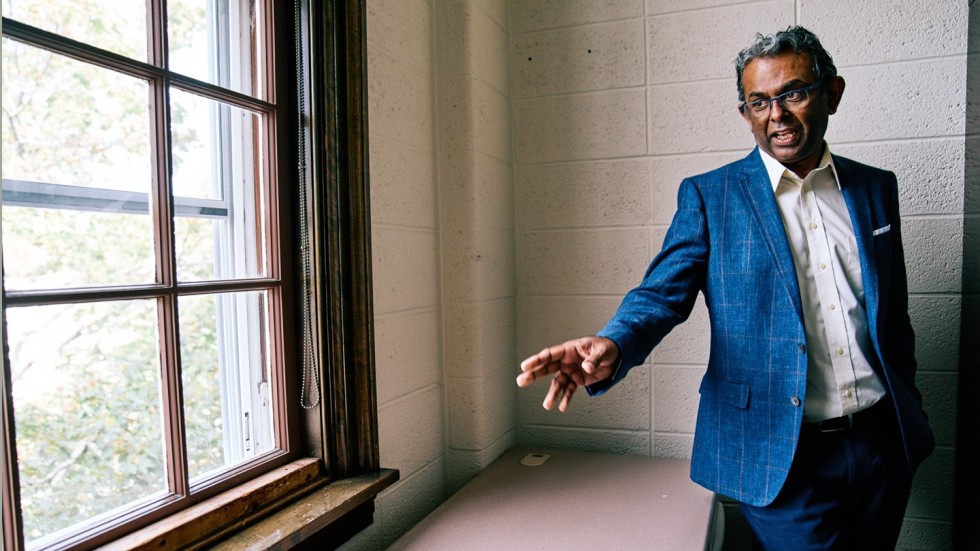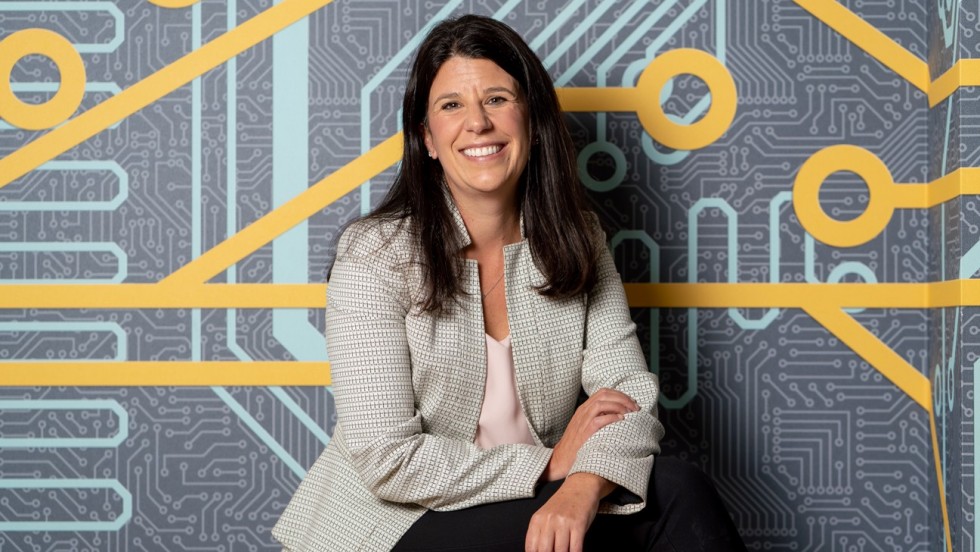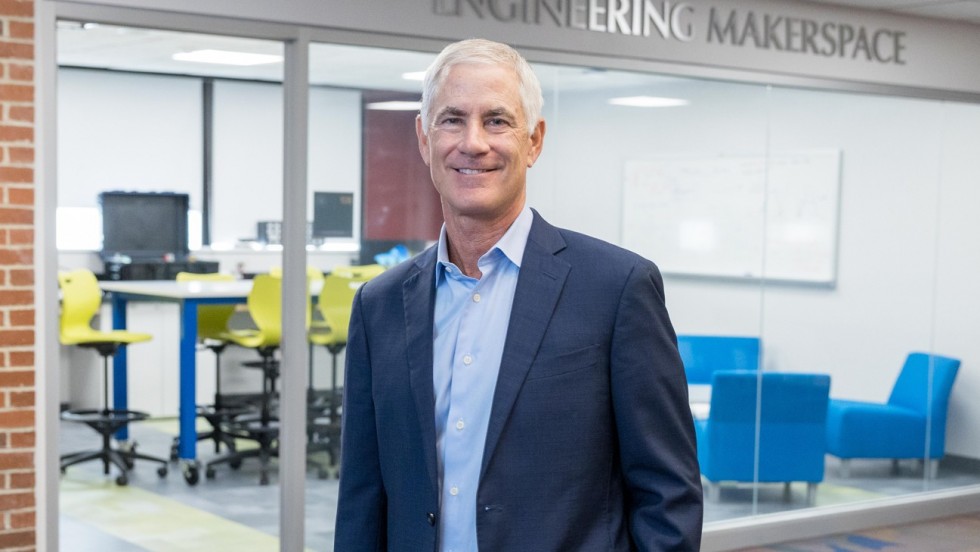
A Humanistic Approach to Engineering
“It’s about training our students to see the problems in society first, then drawing on engineering principles to think about solving them,” says Hassan Bajwa, director of engineering, Stonehill’s newest academic program.
Engineers are tasked with solving problems. Possessing a mix of skills and knowledge, they come up with the big ideas, ask the tough questions and know how to get stuff done. As a result, engineers apply the principles of mathematics and science, combined with critical analysis and creative thinking, to develop innovative solutions to society’s biggest challenges.
This idea is what informed Stonehill’s newly launched academic program in humanistic engineering. If you haven’t heard the term, you might be wondering what it means. At Stonehill, it means engineering students learn about critical thinking, ethics and social sciences—along with their rigorous STEM subjects—to develop the skills needed to solve problems threatening humans and our planet.
“It’s about training our students to see the problems in our society first, then draw on engineering principles to think about solving them,” says Hassan Bajwa, professor and director of the engineering program. “It broadens their focus—and capacity for applied learning—to include much more than math equations and lab time alone.”
Bajwa notes that the program is designed to help engineering majors learn to ask critical questions, carefully consider unintended consequences and care about their impact on society. For example: How can we build more sustainable affordable housing? Can we create chemicals that don’t put our health at risk? What kind of systems can we design to protect our cities from rising sea-levels?
Stonehill is among the nation’s first academic institutions to offer an undergraduate program centered explicitly on the humanistic approach to engineering, which aligns with the College’s belief that students in every discipline should learn to measure success based on their impact on others.
Young people today want careers that make a difference, Bajwa says. As companies and industries increasingly shift toward corporate responsibility and sustainability, this humanistic approach simply makes sense. “We are educating engineering students with this in mind. But education has to change much faster than industry,” he notes. “Education must lead the way.”
Real-World Experience
As part of the College's new engineering program, 12 alumni—many from our computer science, math and 3+2 dual degree engineering programs, as well as from the education, nonprofit and corporate worlds—joined our newly formed Industry Advisory Board (IAB) to help shape and inform the program with their real-world experience. Here, we meet three alums serving on the board, all of whom are contributing to the world of engineering from different paths and perspectives.
Amy Johnson's Secret Weapon
Patrick Burke Supports Tomorrow's Engineers
In addition to the College’s new engineering program, with majors in computer and electrical engineering, Stonehill is continuing its 3+2 partnerships with the University of Notre Dame and King’s College, which offer even more engineering options for students, including aerospace, civil, chemical, mechanical, and environmental engineering.
Stonehill’s newly formed engineering program, launched in 2021, builds on its long-standing 3+2 Engineering Dual-Degree program and introduces two new majors: electrical engineering and computer engineering, as well as minors in both disciplines. Features of the new program include a photonics lab and a makerspace, with 3-D printers, solar panels and a small windmill. These will allow students to work with community partners to tackle real- world problems—developing and creating their own sustainable solutions.
Stonehill is one of the few colleges in the United States to offer an undergraduate major in photonics—the science and technology of light-based devices and light-based methods for measurement and sensing. The bachelor of arts major and minor in photonics are perfect for students passionate about science and engineering. The degree positions them for success in areas including physics, electrical engineering, biomedical optics and medicine. And the career field is rapidly expanding, with applications ranging from applied fields like telecommunication, autonomous driving vehicles, cloud computing, big data, smart mobile, manufacturing and medical diagnostics to purely scientific advances in chemistry, biology and physics.
Stonehill Alumni Magazine
Fall ’22 | Winter ’23



